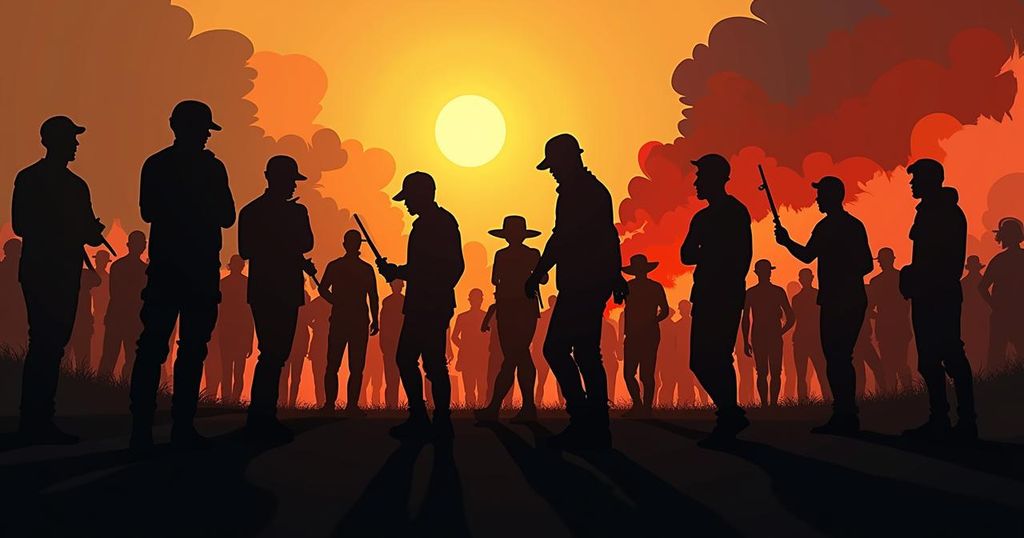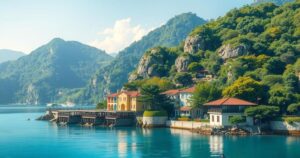Election Protestors Disappear Amid Repression in Venezuela: A Tale of Dissent and Oppression

Following the controversial reelection of Nicolás Maduro, Venezuela has witnessed a surge of protests, especially among lower-income neighborhoods historically loyal to Chavismo. Many have been arrested and labeled as terrorists for their participation in these demonstrations, highlighting the regime’s oppressive tactics to silence dissent amid a severe humanitarian crisis. The societal divide is evident as middle-class opposition figures rally within a different narrative, while the impoverished face direct reprisals from the government.
In the blistering heat of the Caribbean sun, a somber scene unfolded on a street leading to the Zone Seven Detention Center in Caracas, Venezuela. Despite the oppressive conditions, hundreds gathered, eager to learn about their loved ones detained during the unrest following President Nicolás Maduro’s controversial election victory, which many, including numerous countries, deemed illegitimate. Hernán García, a father, represented many searching for clarity regarding his 19-year-old son, Luis, who vanished after participating in protests against the election results. Luis’s disappearance embodies a broader narrative of dissent against a regime marked by increasing authoritarian tendencies. Historical context reveals that under Hugo Chávez, Maduro’s predecessor, massive oil revenues fueled welfare programs, lifting millions out of poverty. However, post-Chávez, a significant plunge in oil prices precipitated a dire humanitarian crisis that has led to an exodus, with nearly a quarter of the population—eight million Venezuelans—fleeing for survival. The election results prompted an uncharacteristic wave of protests, particularly among impoverished neighborhoods traditionally loyal to Chavismo. What ensued was a harsh governmental crackdown; following the announcement of the election results on July 29, Caracas transformed, marred by flames and violence as demonstrators clashed with security forces enforcing strict order. Reports indicate that the government has arrested thousands, branding those detained as “terrorists” guilty of attempting a coup, leading to sentences of up to 30 years in prison or forced labor. As protests dwindled and fear permeated the air, middle-class opposition leaders organized demonstrations, starkly different from those of the impoverished populace routinely targeted by authorities. This division highlights a significant rift in the Venezuelan socio-political landscape, with fears of repressive measures dampening public dissent amidst oppression.
The political turmoil in Venezuela, particularly in the wake of recent presidential elections, has drawn international attention to the country’s humanitarian crisis. President Nicolás Maduro’s contentious reelection, fueled by allegations of electoral fraud, has reignited protests, revealing deep-seated discontent even among constituencies traditionally supportive of Chavismo. The economic collapse following a dramatic decrease in oil prices, coupled with the exodus of millions seeking a better life, sets the stage for these protests. The response of Maduro’s government has included detaining thousands under the guise of anti-terrorism, stifling dissent through violence and repression, which poses grave implications for the future of governance and civil liberties in Venezuela.
In summary, the recent events in Venezuela reflect a critical moment in its political history, characterized by widespread protests against an increasingly authoritarian regime. Family members are left in despair as charismatic leaders clash in a society deeply affected by poverty and repression. The actions taken by Maduro’s government, including mass arrests and the labeling of detained protesters as terrorists, underscore the oppressive nature of its administration in the face of rising opposition. As Venezuelans contend with economic challenges and a fraught political landscape, the quest for justice and peace becomes increasingly vital yet perilous.
Original Source: www.thestkittsnevisobserver.com






